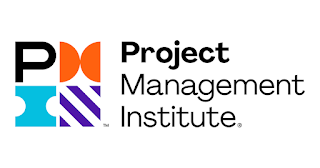Today we will talk about PMI certifications.
When I passed my PMP exam in 2010, PMI offered only a few other certifications: PMI-RMP, PMI-SP, and PgMP.
These days, that number has grown dramatically. The PMI offers seven certifications in addition to the PMP certification, and a few more are under the process of launching.
If you have passed the PMP exam, you might be thinking about expanding your skills and wondering what other certifications have to offer.
To give you an idea about these other opportunities, this blog post will cover additional PMI certifications found here.
PMI Certifications
PMI offers eight certification courses:1. CAPM
2. PMP
3. PgMP
4. PfMP
5. PMI-ACP
6. PMI-PBA
7. PMI-RMP
8. PMI-SP
Besides these certifications, PMI is launching new Agile certifications; you can find more details by clicking here.
CAPM (Certified Associate of Project Management)
This PMI certification is for entry-level professionals. It has lenient eligibility requirements, and you can apply for it even if you don’t have project management experience.
The CAPM certification is valid for three years and requires 15 PDUs to renew it for a further three years.
PMP (Project Management Professional)
This is the most sought-after certification for project professionals. If you are in project management, you should definitely go for this certification. This credential will help you take your career to the next level and requires the following prerequisites:
If you have a secondary degree (high school diploma, associate degree, or the global equivalent), a minimum of five years or 60 months of unique non-overlapping professional project management experience is required.
If you have a four-year degree or equivalent, a minimum of three years or 36 months of unique non-overlapping professional project management experience is required.
If you have a bachelor’s or post-graduate degree from a GAC-accredited program or global equivalent, you should have a minimum of two years or 24 months of unique non-overlapping professional project management experience.
This certification is valid for three years. You can renew it by earning 60 PDUs in three years and notifying the PMI. This is known as the Continuing Certification Requirements (CCR) cycle.
PgMP (Program Management Professional)
You can apply for this certification if you are managing similar projects.
To apply for this certification, you should have a diploma or a bachelor’s degree. Diploma holders need 6,000 hours of project management experience and 10,500 hours of program management experience.
If you have a 4-year degree, you will need 6,000 hours of project management experience and 6,000 hours of experience in program management.
This certification is valid for three years. You can renew it for another three years after completing the CCR program.
PfMP (Portfolio Management Professional)
You should go for this certification if you are managing diverse projects or programs.
To apply for this certification, you should either hold a diploma or a bachelor’s degree.
The portfolio management experience requirement for diploma holders is 10,500 hours and 96 months of professional business experience.
If you have a 4-year degree, you will need 6,000 hours of portfolio management experience and have 96 months of professional business experience.
If you have a 4-year degree, you will need 6,000 hours of project management experience and 6,000 hours of experience in program management.
This certification is valid for three years. You can renew it for another three years after completing the CCR program.
PMI-ACP (PMI–Agile Certified Practitioner)
This certification is for Agile professionals and is the second most popular PMI certification after the PMP.
To apply, you should hold a secondary degree and have 1,500 Agile project management experience hours. Additionally, you should have 2,000 hours of experience in project management.
This certification is valid for three years. You must earn 30 PDUs in Agile practice to renew for a further three years.
PMI-PBA (PMI Professional in Business Analysis)
This certification is for business analysts.
If you have a secondary degree, you should have 7,500 hours of experience in business analysis. For a bachelor’s degree holder, the requirement is 4,500 hours.
The necessary project management experience is 2,000 hours, and you also have to attend a 35 contact hours training program in business analysis.
This certificate is valid for three years. You can renew it for a further three years after earning 60 PDUs in business analysis topics.
PMI-RMP (PMI Risk Management Professional)
You should go for this certification if you want to take your career to the next level in risk management.
Diploma or degree holders can apply for this certification. If you have a diploma, you should have 4,500 hours of experience in risk management. If you are a degree holder, the requirement is 3,500 hours.
The training program is 40 hours long for diploma holders and only 30 hours for those with 4-year degrees.
This certification is valid for three years. You can renew it for a further three after completing the CCR program, which includes earning 30 PDUs in risk management.
PMI-SP (PMI Scheduling Professional)
This certification is for professionals working in project planning and scheduling.
You will need a diploma with 5,000 hours of experience in project scheduling. Afterward, you must attend 40 contact hours of training in scheduling management. Then you will be eligible for this certification.
If you have a 4-year degree, you should have 3,500 hours of experience in project scheduling. Then you should attend a 30 contact hours training program in scheduling management.
This certificate is valid for three years. To renew it for another three, you will have to earn 30 PDUs in scheduling management.
Source: pmstudycircle.com






0 comments:
Post a Comment